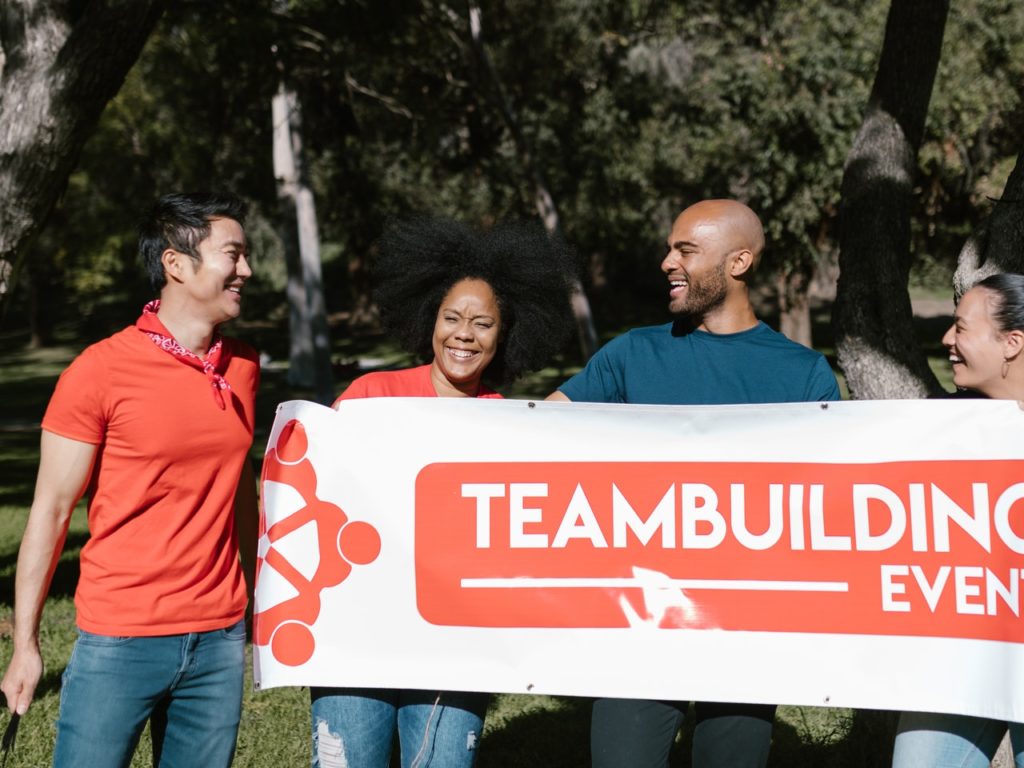Team building is an important part of people management and is highly-effective when it comes to onboarding new colleagues. Our guide covers the basics of organizing an event to help you build your team and important factors to consider.
In organizing an effective team-building activity, there is a lot to take into consideration, from employees’ personalities to finding the best activities to provoke the desired outcomes. To help you through this, we’ve got a few tips and tricks for ensuring hitch free team event.

KNOW THE TEAMS NEEDS: WHAT’S THE TEAM BUILDING GOAL?
When you set out to plan a team building activity, it’s important to know what you want to get out of it. It’s tempting to do some team events just because it’s the “done thing” to do, but there should always be specific reasoning behind it. Is it to get to know each other better? Is it to address a specific concern or to learn something new?

SET OUT THE GOALS
In answering the above questions, list the areas that the team needs to work on, whether its communication, teamwork, productivity or something else entirely. Write down at least three goals that you’d like to achieve i.e. “what will be different after the event”?

WEIGH UP THE TEAM BUILDING RETURN ON INVESTMENT
Though team-building events have an inherent element of fun, there’s still an understanding that there will be expected outcomes in much the same way as more formal training or conferences have. Thus, it’s easier to justify the costs for a budget and make it a sound investment.

DECIDE THE ANGLE
What do you want the focus of the event to be on? Is it going to be something fun to strengthen team bonds or a problem-solving needed to work through specific challenges? Here’s where insights from the team will come in useful. Employees will tend to be more engaged if the activity represents their definition of fun/challenges.

PICK THE RIGHT DATE AND TIME
Part of pleasing everyone is choosing a date and time for the event that works with your entire team. You’ll have to take busy schedules and calendars into consideration before you finalize these details or you risk interfering with the time that might be valuable for certain members of staff.

